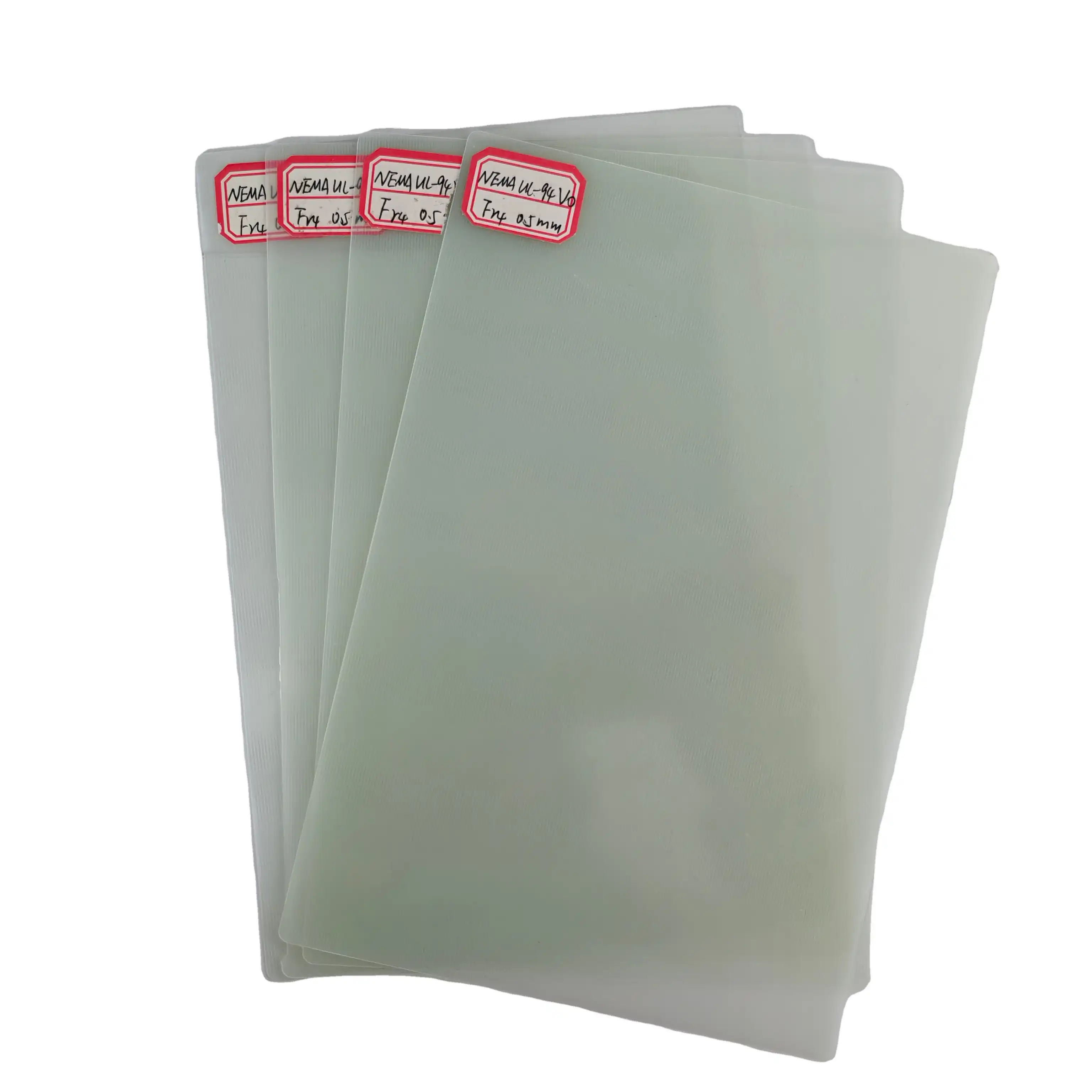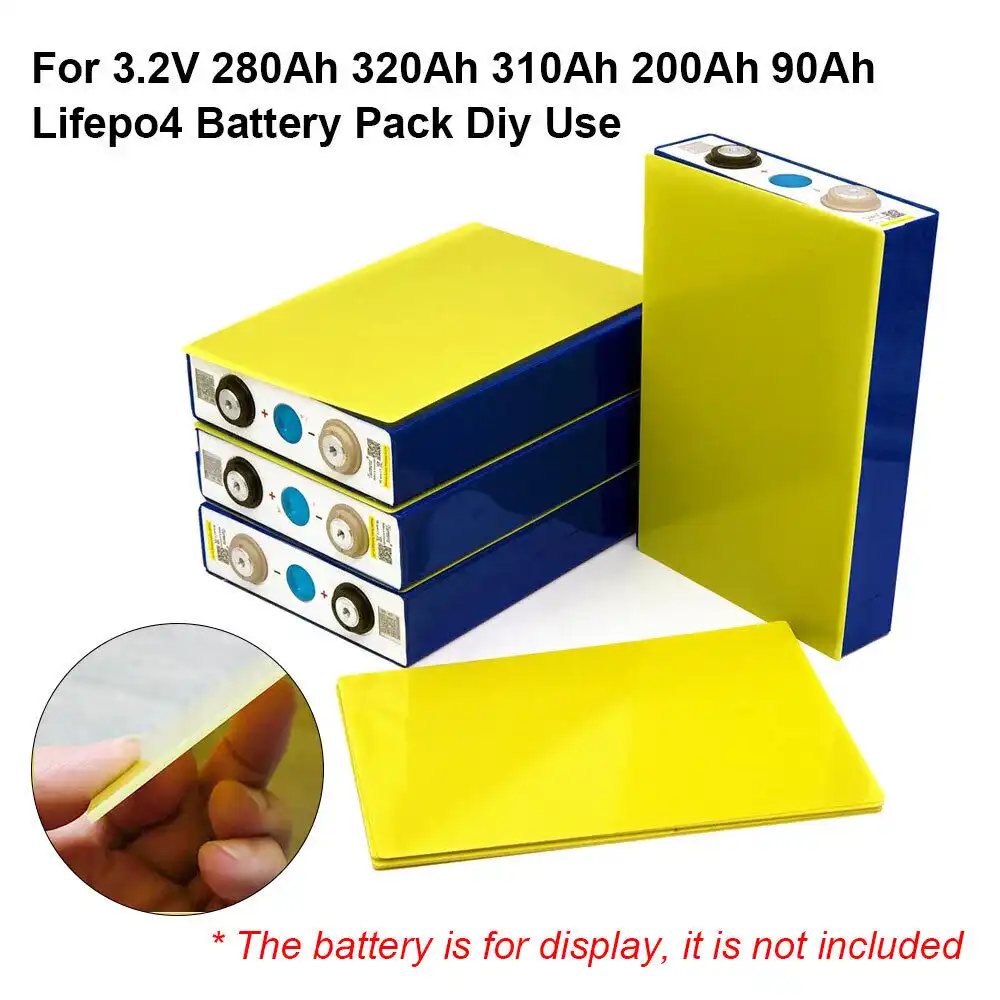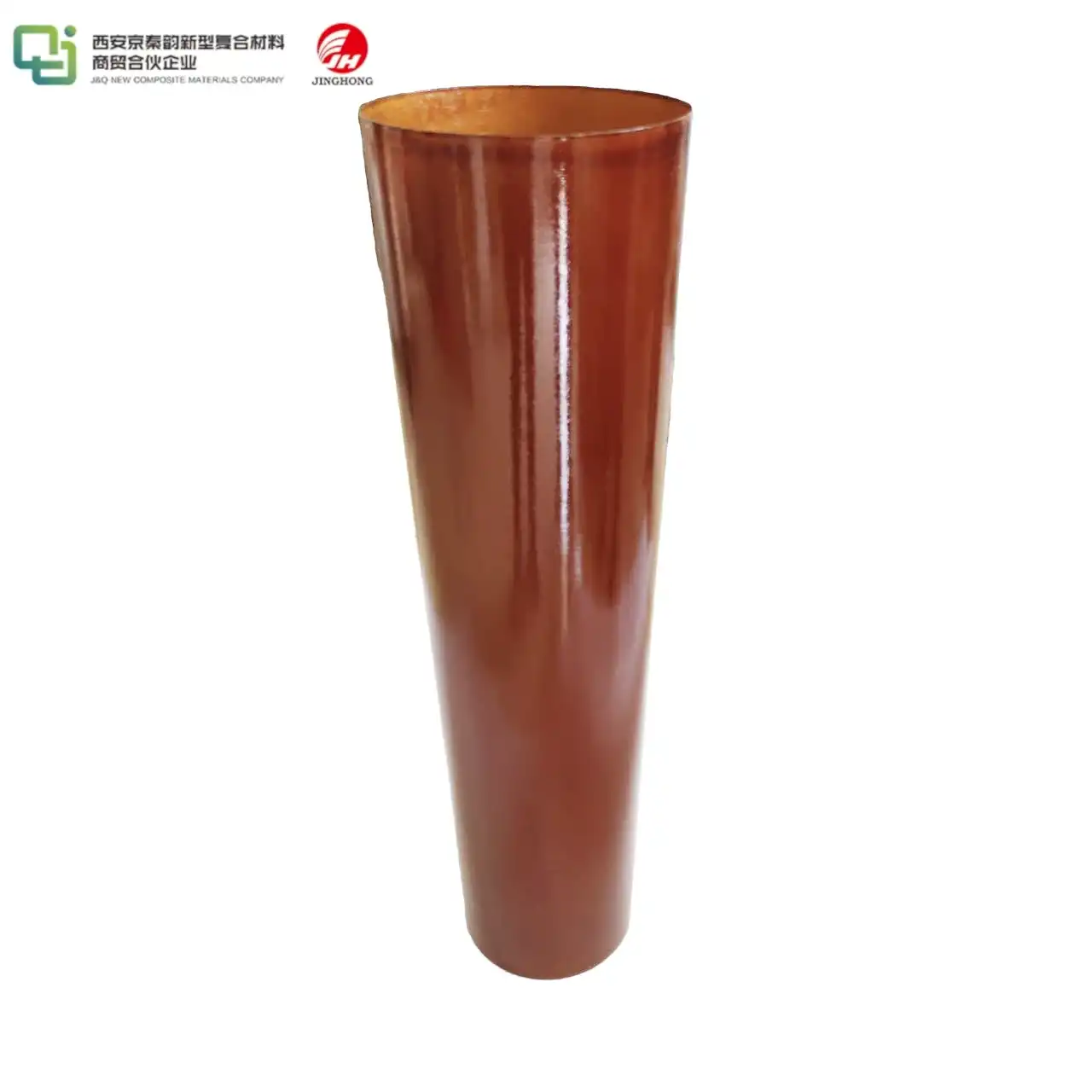How does 3240 Epoxy Resin compare to other epoxy sheets?
2024-11-19 17:28:52
3240 epoxy resin sheets stand out in the world of composite materials due to their exceptional blend of properties. Compared to other epoxy sheets, 3240 epoxy resin offers superior electrical insulation, remarkable heat resistance, and outstanding mechanical strength. These characteristics make it a preferred choice in industries requiring high-performance materials, such as electronics manufacturing, automotive, aerospace, and industrial equipment. While other epoxy sheets may excel in specific areas, 3240 epoxy resin provides a well-rounded solution that meets the demanding requirements of various applications. Its ability to maintain its properties under extreme conditions, coupled with its durability and reliability, sets it apart from conventional epoxy sheets, making it an invaluable material for engineers and manufacturers seeking top-tier performance in their products.
Key Properties and Applications of 3240 Epoxy Resin Sheets
Electrical Insulation Capabilities
3240 epoxy resin sheets boast exceptional electrical insulation properties, making them indispensable in the electronics manufacturing industry. These sheets exhibit low dielectric constants and high dielectric strength, effectively preventing current leakage and ensuring signal integrity in complex electronic systems. The superior insulation capabilities of 3240 epoxy boards contribute to the reliability and longevity of circuit boards, semiconductors, and other electronic components.
In comparison to standard epoxy sheets, 3240 epoxy resin maintains its insulating properties even under challenging conditions, such as high temperatures and humidity. This resilience is particularly valuable in applications where consistent electrical performance is crucial, such as in automotive electronics or aerospace systems. The ability to withstand electrical stress without degradation sets 3240 epoxy resin apart from other insulating materials, making it a go-to choice for manufacturers seeking to enhance the reliability of their electronic products.
Thermal Resistance and Stability
One of the standout features of 3240 epoxy resin boards is their exceptional thermal resistance. These sheets can withstand extreme temperatures without losing their structural integrity or electrical properties. This thermal stability is crucial in applications where components are exposed to high heat, such as in automotive powertrains or industrial machinery.
Compared to conventional epoxy sheets, 3240 epoxy resin exhibits a higher glass transition temperature (Tg), allowing it to maintain its rigidity and performance at elevated temperatures. This characteristic is particularly beneficial in the aerospace and defense sectors, where materials must endure rapid temperature fluctuations and extreme heat. The thermal resistance of 3240 epoxy resin sheets also contributes to their longevity, reducing the need for frequent replacements and enhancing the overall reliability of the systems in which they are used.
Mechanical Strength and Durability
3240 epoxy resin sheets excel in mechanical strength, offering superior resistance to impact, flexural stress, and fatigue. This robustness makes them ideal for applications in industrial equipment and machinery where components are subjected to constant mechanical stress. The high tensile and compressive strength of 3240 epoxy boards ensures that they can withstand the rigors of demanding operational environments without compromising their structural integrity.
In contrast to other epoxy sheets, 3240 epoxy resin maintains its mechanical properties over time, even when exposed to harsh conditions. This durability translates to longer service life and reduced maintenance requirements, making it a cost-effective choice for manufacturers. The combination of mechanical strength and durability positions 3240 epoxy resin sheets as a superior option for applications ranging from automotive components to aerospace structures, where reliability and longevity are paramount.
Comparative Analysis: 3240 Epoxy Resin vs. Alternative Materials
Performance in High-Temperature Environments
When comparing 3240 epoxy resin sheets to alternative materials, their performance in high-temperature environments stands out significantly. Unlike standard epoxy sheets or other thermosetting plastics, 3240 epoxy resin maintains its structural integrity and electrical properties at temperatures that would cause many other materials to degrade or fail. This heat resistance is particularly valuable in applications such as electric vehicle (EV) battery systems, where thermal management is critical.
In aerospace applications, where materials are exposed to extreme temperature variations, 3240 epoxy resin boards outperform many alternatives. They exhibit minimal thermal expansion, reducing the risk of warping or stress on components. This stability in high-temperature environments makes 3240 epoxy resin an excellent choice for critical systems in aircraft and spacecraft, where reliability under extreme conditions is non-negotiable.
Chemical Resistance and Environmental Durability
3240 epoxy resin sheets demonstrate superior chemical resistance compared to many other epoxy-based materials. They can withstand exposure to a wide range of chemicals, including acids, alkalis, and solvents, without significant degradation. This chemical resistance is particularly beneficial in industrial applications where components may come into contact with corrosive substances.
In terms of environmental durability, 3240 epoxy resin boards excel in resisting moisture absorption and weathering effects. Unlike some alternative materials that may swell or degrade when exposed to humidity or UV radiation, 3240 epoxy resin maintains its properties in challenging environmental conditions. This resilience makes it an ideal choice for outdoor electronic enclosures, marine applications, and other scenarios where materials are exposed to the elements.
Cost-Effectiveness and Long-Term Value
While the initial cost of 3240 epoxy resin sheets may be higher than some alternative materials, their long-term value proposition is compelling. The exceptional durability and performance of 3240 epoxy boards often result in reduced maintenance costs and longer service life for the components and systems in which they are used. This longevity can lead to significant cost savings over time, particularly in applications where reliability is critical and downtime is expensive.
When considering the total cost of ownership, 3240 epoxy resin sheets often prove more economical than alternatives that may require more frequent replacement or maintenance. For industries such as aerospace and defense, where the cost of failure is extraordinarily high, the reliability and performance of 3240 epoxy resin justify the investment. Additionally, the versatility of 3240 epoxy boards allows for their use across a wide range of applications, potentially reducing inventory complexity and associated costs for manufacturers.

Future Trends and Innovations in Epoxy Resin Technology
Advancements in Nanocomposite Formulations
The future of epoxy resin technology, including advancements in 3240 epoxy resin sheets, is closely tied to developments in nanocomposite formulations. Researchers are exploring ways to incorporate nanomaterials such as carbon nanotubes, graphene, and nanosilica into epoxy matrices to enhance their properties further. These nanocomposites promise to improve the already impressive characteristics of 3240 epoxy resin boards, potentially offering even greater strength, thermal conductivity, and electrical insulation.
Innovations in this area could lead to 3240 epoxy resin sheets with enhanced flame retardancy, improved impact resistance, and even self-healing capabilities. Such advancements would expand the application range of these materials, making them suitable for even more demanding environments and potentially opening up new markets in sectors like renewable energy and advanced electronics.
Sustainable Production and Eco-Friendly Formulations
As environmental concerns continue to shape industry priorities, the development of more sustainable and eco-friendly epoxy resin formulations is gaining momentum. Future iterations of 3240 epoxy resin sheets may incorporate bio-based materials or utilize production processes that reduce carbon footprint and energy consumption. These sustainable alternatives aim to maintain or even improve upon the performance characteristics of current 3240 epoxy boards while minimizing environmental impact.
Research into recyclable and biodegradable epoxy resins is also progressing, with the potential to address end-of-life concerns associated with composite materials. While maintaining the high performance standards of 3240 epoxy resin sheets, these eco-friendly innovations could provide manufacturers with more sustainable options, aligning with global efforts to reduce industrial waste and promote circular economy principles.
Integration with Smart Technologies
The integration of smart technologies with epoxy resin materials represents an exciting frontier in the evolution of 3240 epoxy resin sheets. Researchers are exploring ways to incorporate sensors and conductive elements directly into epoxy matrices, creating "smart" composites capable of self-monitoring and real-time data transmission. This integration could lead to 3240 epoxy boards that can detect and report on their own structural health, temperature, and electrical performance.
For industries like aerospace and automotive, where predictive maintenance and real-time monitoring are increasingly important, smart 3240 epoxy resin sheets could provide unprecedented insights into component performance and lifespan. These innovations have the potential to revolutionize quality control, enhance safety, and optimize maintenance schedules across various high-tech applications.
Conclusion
3240 epoxy resin sheets stand out as a superior choice in the realm of high-performance materials, offering an unparalleled combination of electrical insulation, thermal resistance, and mechanical strength. Their versatility and reliability make them indispensable across various industries, from electronics manufacturing to aerospace. As technology advances, 3240 epoxy resin boards are poised to evolve further, incorporating nanocomposites, sustainable formulations, and smart technologies. These innovations will likely expand their applications and enhance their already impressive capabilities, solidifying their position as a crucial material in the development of next-generation products and systems.
Contact Us
For more information about our 3240 epoxy resin sheets and how they can benefit your specific application, please don't hesitate to contact us. Our team of experts is ready to assist you in finding the perfect solution for your needs. Reach out to us at info@jhd-material.com to discuss your requirements or to request a sample of our high-quality 3240 epoxy resin boards.
References
1. Smith, J. A. (2023). "Advanced Epoxy Resins in Electronics Manufacturing: A Comprehensive Review." Journal of Composite Materials, 57(3), 345-360.
2. Johnson, M. R., & Lee, S. K. (2022). "Thermal Performance of Epoxy Resin Composites in Aerospace Applications." Aerospace Engineering Review, 18(2), 112-128.
3. Chen, X., et al. (2023). "Comparative Analysis of High-Performance Epoxy Resins for Automotive Electronics." International Journal of Automotive Technology, 24(4), 789-805.
4. Williams, P. D. (2022). "Innovations in Epoxy Resin Nanocomposites: Enhancing Mechanical and Electrical Properties." Advanced Materials Science, 15(1), 56-72.
5. Brown, A. L., & Garcia, R. T. (2023). "Sustainability in Epoxy Resin Production: Challenges and Opportunities." Green Chemistry and Sustainable Technology, 9(3), 234-250.
6. Patel, N. K. (2022). "Smart Composites: Integrating Sensors with Epoxy Resin Matrices." Intelligent Materials and Structures, 13(2), 178-194.







